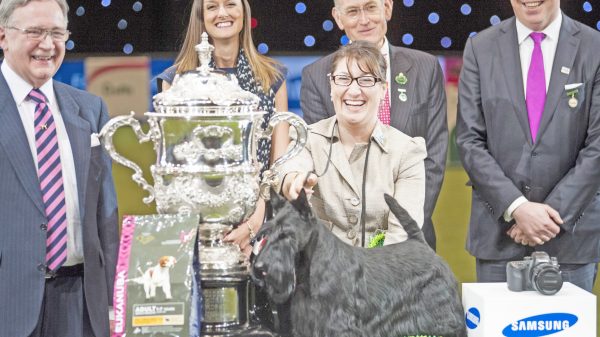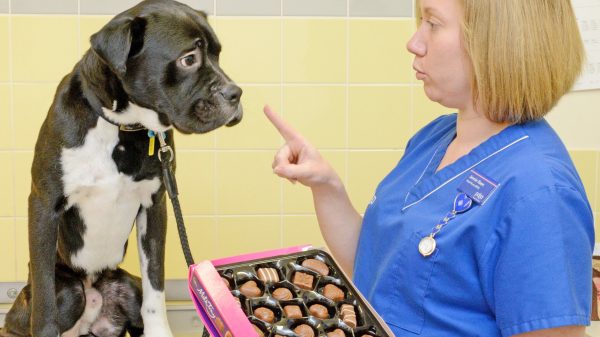Tougher dog breeding licensing rules to better protect thousands of puppies are to be introduced as part of a swathe of reforms to safeguard the welfare of Britain’s pets, Environment Secretary Andrea Leadsom announced recently.
The plans to tighten up laws around selling pets and breeding dogs will make it completely illegal to sell puppies younger than eight weeks and require anyone breeding and selling three or more litters of puppies a year to apply for a formal licence. Irresponsible breeders who don’t stick to these rules face an unlimited fine and/or up to six months in prison.
The new rules will mean smaller establishments – sometimes called ‘backstreet breeders’ – which supply thousands of dogs to families each year, as well as larger commercial breeders, must meet strict welfare criteria to get a licence. Irresponsible breeders can neglect the health and welfare of the puppies they raise and may not properly vaccinate them, leading to steep vets’ bills and heartbreak for buyers.
The rules will also be updated and made fit for the modern age with anyone trading commercially in pets online needing to be properly licensed, to help make reputable sellers easily accessible to prospective buyers.
The plans also cover how pet shops, boarding houses and riding stables are licensed, introducing a single ‘animal activities licence’ to improve the process and make enforcement easier.
Environment Secretary Andrea Leadsom said:
“Everyone who owns a pet or is looking to introduce one into their life will want to know that the animal has had the very best start to life. Yet for thousands of puppies born each year to irresponsible breeders, from smaller operations to larger puppy farms, their first weeks are spent in cramped and squalid conditions without the care and attention they need. That is why we are cracking down on the worst offenders by strengthening the dog breeding licence and giving councils the power they need to take action.”
With more and more pet sales now taking place on the internet, it’s right that this market is subject to the same strict licensing criteria as other breeders and pet shops so that consumers are not misled. The plans announced will help people choosing new family pets to be confident the animals have been properly bred and cared for from birth and are ready to move safely to their new homes.
Under the new plans, pet shops will also be required to give buyers written information about the animals they buy, with details of the five welfare needs owners must meet under the Animal Welfare Act around environment, diet, behaviour, housing and freedom from pain. This advice is particularly important when buying exotic pets, which can have very specific welfare needs.
Welcoming the plans, Dogs Trust Veterinary Director, Paula Boyden, said:
“As the UK’s largest dog welfare charity, Dogs Trust welcomes the Government’s review of animal establishments licensing in England and the range of measures it sets out.
“We are particularly pleased that it will be illegal to sell a puppy below the age of 8 weeks and that there will be tighter licensing rules which will require sellers of pets to display their licence when advertising. We also applaud the move towards a risk based single licensing system which will incorporate those breeders that have gained UKAS approval rather than exempting them.
“We believe that Local Authority Inspectors need support to enforce these tighter licensing rules. As such, moves to mandate the use of Model Conditions and for inspectors to be offered training and standards to be set is most welcome.”
Caroline Kisko, Kennel Club Secretary said:
We are pleased that Defra will be taking forward proposals to ban the sale of puppies under the age of 8 weeks by commercial third parties; we have called for a ban on third party sales, and refuse to register puppies being sold to third parties, but this new rule is a step in the right direction. We also welcome the requirement for pet sellers to provide written information about the animals they sell and for those who sell pets online to display their licence number.
“As the litter licensing threshold is set to reduce from five litters to three we look forward to working with Defra on the new risk based licensing system, to ensure that UKAS accredited Assured Breeder Scheme (ABS) members will continue to be inspected by the Kennel Club for the maximum licence length of three years. This will incentivise more breeders to join the scheme, and breed to a higher standard of welfare that the ABS requires, and reduce the inspection burden on local authorities.”
Pet owners are also being urged to make sure their pet’s microchip details are up to date. Latest figures show 94% of dogs have been fitted with microchips, nine months after the Government introduced a law requiring all dogs to be painlessly fitted with a chip containing their owner’s details. But a Battersea Dogs and Cats Home study of stray dogs last year found that only 20% of their microchips contained up to date information.
It’s vital that owners who move house or change their phone number make sure they keep their pet’s details up to date, so they can be reunited should their four-legged friend ever go missing. Owners can check with their microchip provider that their details are correct.
Andrea Leadsom added:
“It is absolutely critical that owners not only make sure their pet is microchipped, but that they also make sure details are kept up to date so they can be reunited if their pet is lost or stolen.
“It is excellent to see that so many owners have taken action to get their dogs chipped, yet all too many still need to be rehomed because the owner hasn’t updated their details—heart-breaking for the owner and the dog, and easily avoidable with a five-minute phone call.”







